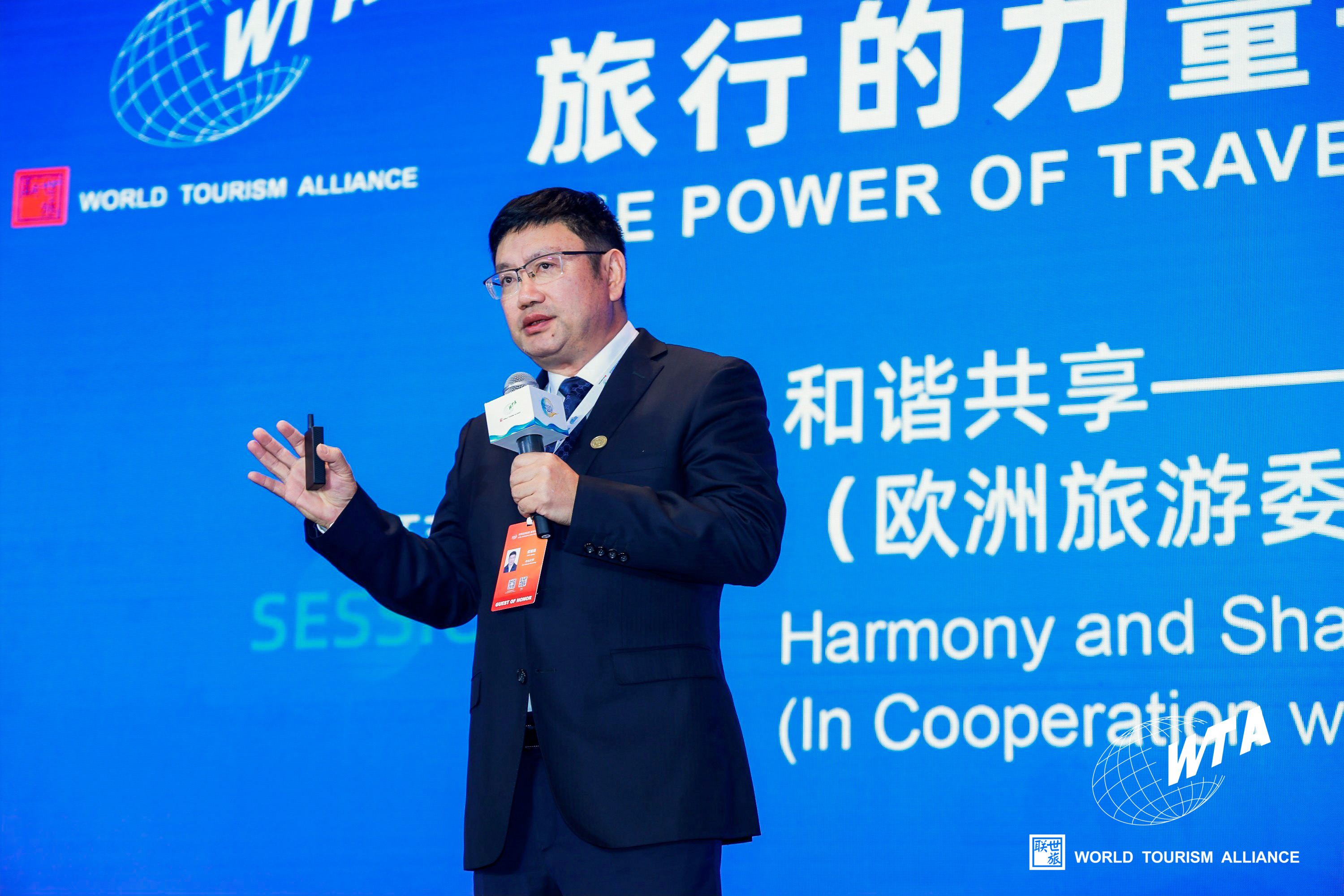2023-11-19

In a pivotal segment of the 2023 WTA • Xianghu Dialogue titled “Harmony and Sharing: Tourism Advances Sustainable Development”, Mr. Bao Jigang, Professor of School of Tourism Management and Director of the Center for Tourism Development and Planning Research at Sun Yat-sen University, Winner of the 16th Ulysses Prize Awarded by UNWTO, shared his insights on the “Rights to Tourist Attractions:The Guarantee of Sustainable Rural Tourism”.
Here are excerpts from his speech:
Developing the tourism industry is a significant industrial choice of rural areas. However, whether the development of tourism in rural areas can certainly achieve poverty reduction or ensure sustainable development is not always certain.
During my three consecutive years of research at the Longji Rice Terraces (“Dragon’s Backbone”) in Guilin, I observed that the local farmers were not reaping the benefits they deserved from tourism. This led them to take actions to prevent tourists from accessing the terraces. After continuous negotiations, a new balance in benefit distribution was established, significantly improving the villagers’ lives in Longji. Another noteworthy case is Azheke Village in Yuanyang, Yunnan. My team’s 2018 research revealed that despite a decade of development by a major state-owned company, generating over 100 million yuan in ticket revenue, the villagers did not benefit financially. The question arises: Why aren’t the creators of these tourist-attracting rice terraces receiving their rightful earnings? This issue remained unresolved for an extended period.
Therefore, in 2012, we proposed a new concept: “Rights to Tourist Attractions”. This refers to the differential earnings from land together with other rights derived from the tourism value of existing land and its attachments. In China, land is collectively owned, including villages and homesteads. Thus, the rights to use the land or its ownership over a certain period are very clear. However, from the perspective of agricultural production, when the rice planted by villagers is taken away, it is universally and naturally regarded as theft. Why, then, isn’t the same true when their intangible assets are taken? This underscores the issue of the rightful ownership of tourist attractions not being properly recognized.
Under this concept, we initiated the “Azheke Plan” in Azheke Village in 2018. The core of this plan was the Rights to Tourist Attractions. We valued the village, terraces, and lifestyle accounting for 70% of the total assets of the attraction, and established a new company with a registered capital of 10 million yuan, with the local community holding 70% and the county government contributing 3 million yuan, accounting for 30%. The aim of this initiative was to achieve poverty alleviation, and heritage protection through tourism. We also mandated that villagers neither rent nor sell their properties, prevent disorderly operations, and protect World Cultural Heritage. Since June 2018, we have sent 10 batches of 20 master’s and doctoral students to the village, with stays ranging from 6 to 14 months, most over 7 months. We handled our marketing and video production. In March 2019, we distributed the first dividends to villagers, with each household receiving 1,600 yuan – in addition to the previous average annual income is 2,700 yuan per capita. In the dividend distribution, we established that 40% goes to traditional dwellings, 30% for terrace farming, 20% to the residents, and 10% to the registered population. To date, eight dividend distributions have been made, totaling 1.43 million yuan, with an average of over 22,000 yuan per household, and 100% of the beneficiaries being impoverished households. This case was included in the WTA Best Practice in Poverty Alleviation Through Tourism 2020, contributing “Chinese power” to the global poverty reduction effort.
Our extensive practice has shown that the Rights to Tourist Attractions are essential for the sustainable development of rural tourism. Only by implementing these rights can we ensure that the development of rural tourism is not just policy-driven poverty alleviation or a showcase of capital operation, but more importantly, it guarantees that tourist attractions hold value and that villagers have shares and profits in it. This is the only way to ensure the continuous development of rural tourism.